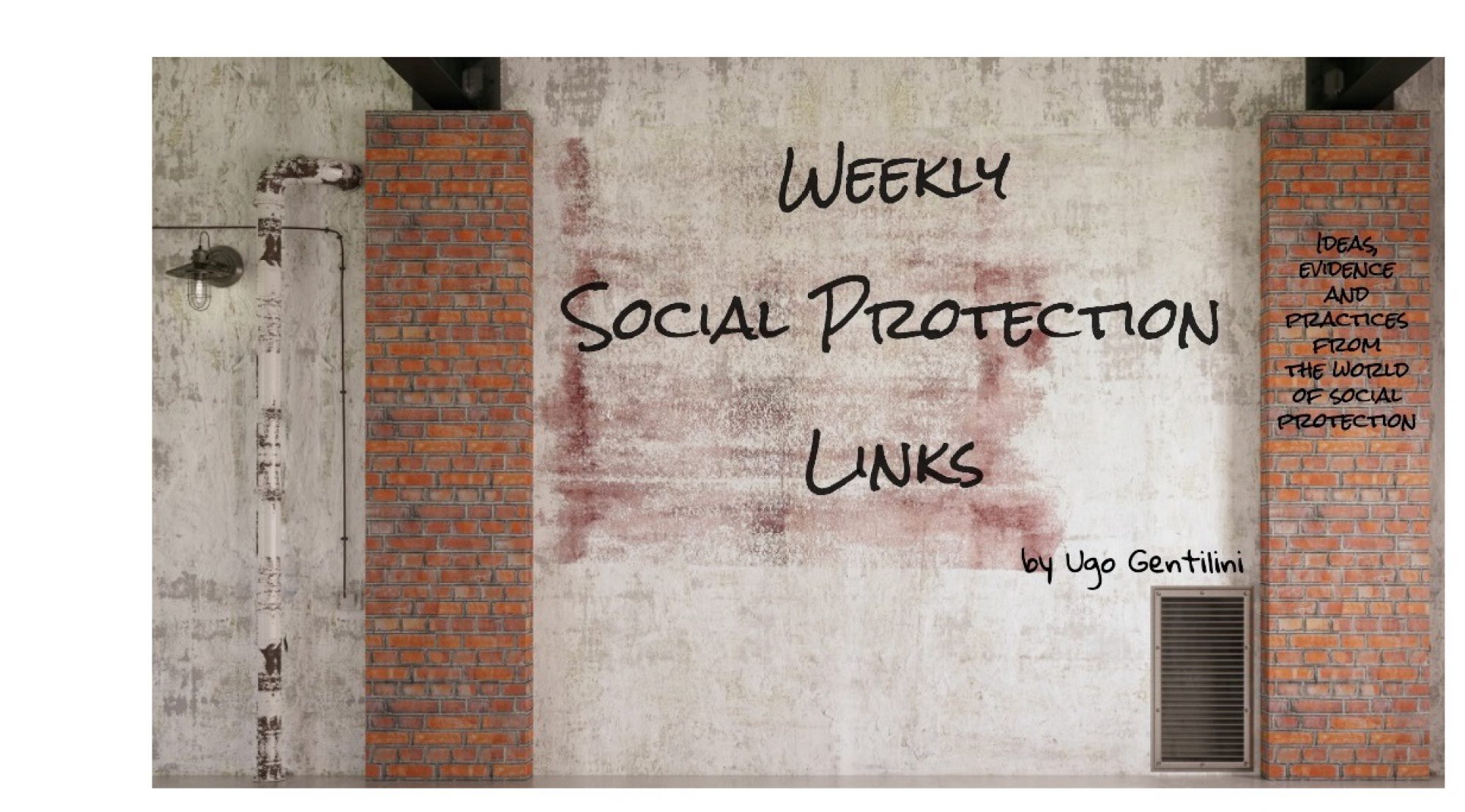
Let’s start with a key issue: politics! While we advanced enormously on delivering social protection, it’s somewhat surprising how relatively little attention goes to how political forces can determine both “if” and “how” cash transfers pan out in practice. So it’s with delight that I welcome Laver’s open-access, edited volume on the politics of distributing social transfers: the book is based on 6 case studies, including Ethiopia (by Lavers), Rwanda (Williams et al), Ghana (Ampratwum), Kenya (Porisky), Bangladesh (Hossain) and Nepal (Pradhan et al). These are preceded by a nice overview on the recent spread of cash transfers and key issues in the politics of distribution. Key insight? “[S]tate capacity alone is insufficient. Vitally, national and local political dynamics shape the ways in which this state capacity is deployed in programme implementation”.
Two great publications help “make the case” for cash transfers: in one paper, Garfinkel et al estimate that institutionalizing the US Child Tax Credit would cost $97B/year; but it would generate social benefits with net present value 10 times higher, or $982B/year. What mechanisms would make this happen? Via future earnings, taxes paid, educational effects, and health outcomes (I love table 1!).
In another paper, Copeland et al document the intergenerational effects of the “casino dividends” program in US over 20 years. They show that adults living as children in families getting transfers (about $5k per-capita/year) show less anxiety and depression; less risky and illegal behaviors’ better health; and more income. And stronger effects are detected among families receiving higher transfers and for longer time.
From effects over time to effects across programs: a new paper by Lang et al benchmarks evidence across three interventions (cash, psychological support, and skills training) in Rwanda. Results? Cash transfers are better for economic activities than psychological programs (for bolstering agency), but not so for psychological impact; and cash is more effective in terms of psychological outcomes than training (mostly soft skills), but less so in terms of bolstering economic effects.
More comparisons in Africa! Aiken et al’s NBER working paper is now published in Nature and reviews Togo’s Covid-19 experience with cash transfers, including offering a comparative targeting performance of machine learning vs geographical vs (hypothetical) social registry-based methods.
Turning to another pandemic, Chipanta et al show that access to social protection by people with/at risk of HIV in four African countries is far below UNAIDS’s Fast Track Commitment 6 (“Ensuring that by 2020, 75% of people living with, at risk of or affected by HIV benefit from HIV-sensitive social protection”). Indeed, they showed that coverage rates among subgroups and those for the general population are similar, with the latter being 7.7% in Zambia, 8.8% in Tanzania, 16.6% in Malawi and 39.6% in Eswatini (see table 3).
Four resources on the brewing, price-induced crisis: Mitchell et al forecast an increase in poverty by 40 million people and argue that “… in low-income countries, expanding the coverage and generosity of social safety nets will be key”. Similarly, one of the 3 steps outlined by Headey and Hirvonen argues that “… governments, international institutions and even the private sector must offer social protection via food or financial aid”. A webinar held yesterday, which I had the pleasure to join, discussed both diagnostics of the problem and response options. And another event is planned at IDS on March 30.
Speaking of crises, ECHO released its new guidance on cash transfers in humanitarian settings. Compared to its 2013 version, the treatment of social protection is vastly different: a decade ago, that wasn’t mentioned even once; now, it appears 88 times, and perhaps not accidentally features prominently in section 1. And “vouchers” was dropped from the title…
Final mix: Ideas of India has a lively interview with Lant Pritchett (including podcast and transcripts); the ILO has a new DG, Gilbert Houngbo, the current president of IFAD; and IPA is looking for a Director for its Social Protection Program (h/t Nathanael Goldberg).
p.s. links will take a week break as I will be out on mission – have a great weekend!
